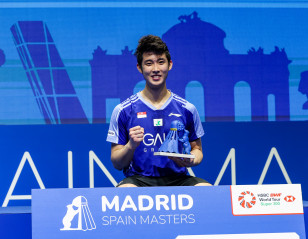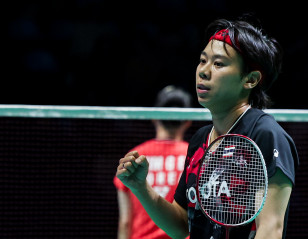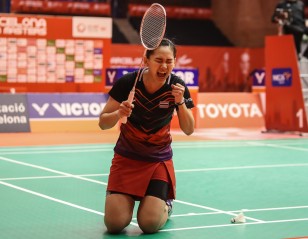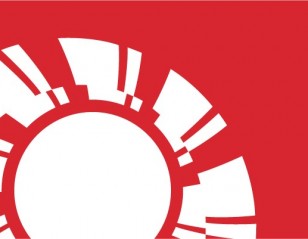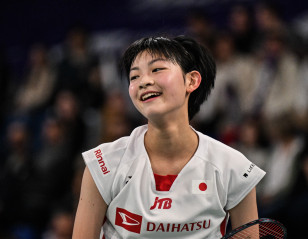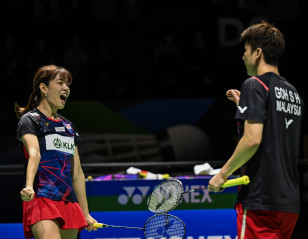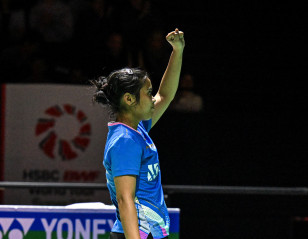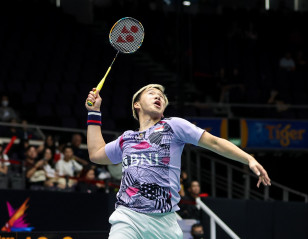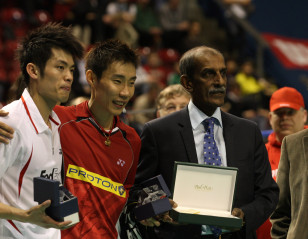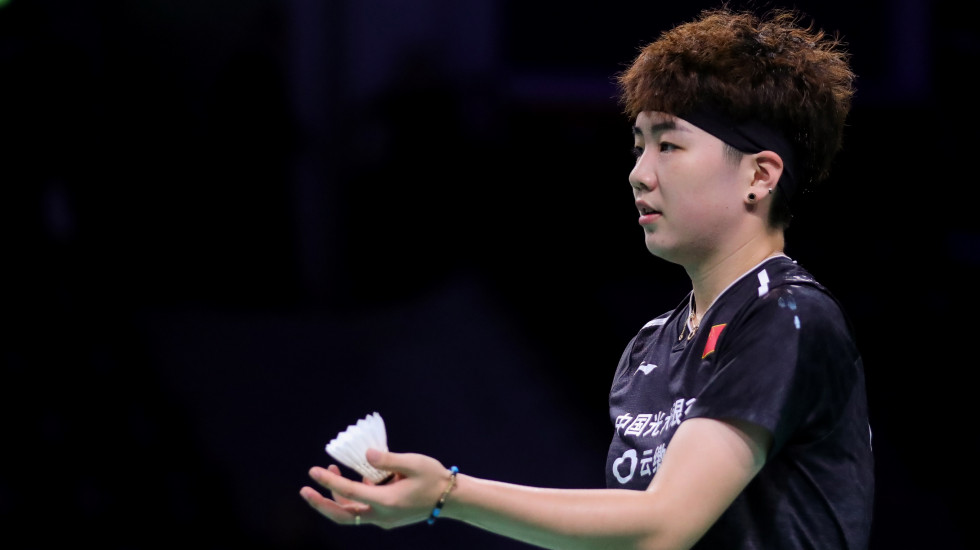
Matters of the Heart – Li Yin Hui’s Early Goodbye
The bubbly Li Yin Hui announced her retirement recently, to the surprise of many. In her mid-20s, and having featured in several major finals in recent years, Li and partner Du Yue were seen as a reliable pair behind China’s top duo Chen Qing Chen/Jia Yi Fan.
The cause of her premature retirement, Li Yin Hui reveals in this long interview, was a complication arising out of pneumonia, which, added to a genetic heart ailment, necessitated constant medication. Part 1 of a two-part interview:
You’re still quite young and performing well. Why did you choose to retire?
I’m 25 now, and to take this decision earlier was very difficult. For a few months after the Olympic Games and National Games, I have been able to regulate my body condition. A few years ago, I once had high fever, and the cause of the high fever was pneumonia, and the fever didn’t go away. Every time after the intensity of competition and training, I would always have three or four days of low grade fever. This was at the All England (2020) too, when I played the final, and the Olympic Games and other high-intensity competition. However, I always knew my (playing) responsibilities and goals, so I stuck to them and didn’t thoroughly check or cure my condition.
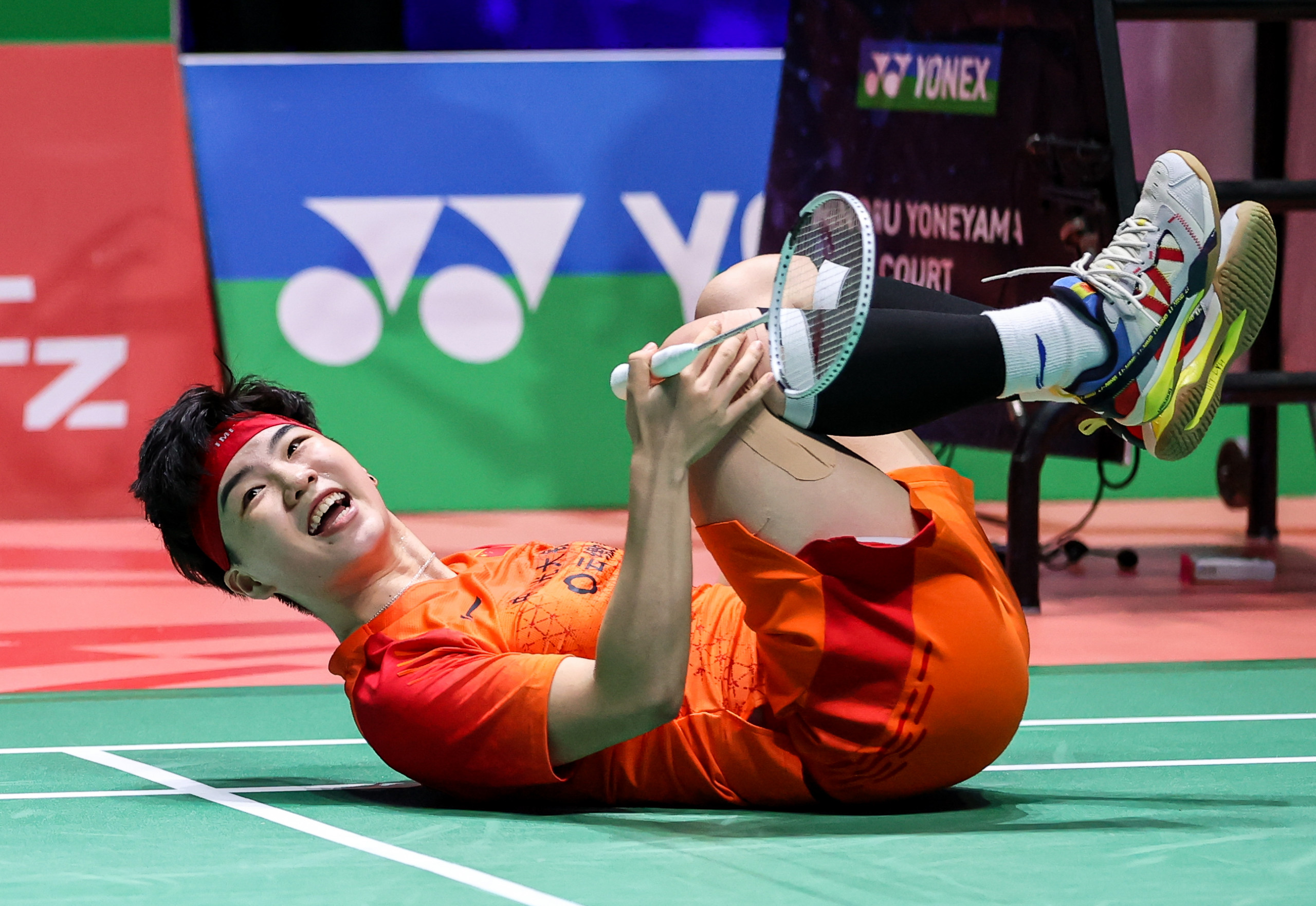
You know, there are strict rules around athlete medication. I kept going, until after the Olympics, I was looking for a very positive way of treatment. Our team leadership and the coach helped me a lot. All this was followed by the discovery of nodules in my lungs.
To add to what I said, I have a genetic condition with my heart. My grandfather has heart disease. It is said that the slower the heart beats, the better it is for the athlete, but the frequency of my heart beats is slower than the average person or athlete, so there are some problems for my recovery and immune system.
So now my choices are limited. I will try to temporarily leave the national team and then go to for a long time to recuperate. In the best case, if I recover, I will try to come back and prepare for Paris.
How long have you had these conditions?
My heart function was relatively good when I was a child. But I contracted pneumonia about seven years ago. My heart beat was very slow and I have to deal with problems resulting from endocrine imbalance.
I had pneumonia for the first time, I remember in Changzhou (China Masters) Open seven years ago. That was the first time I played senior level. I had a fever of almost 40 degrees. At night I went to the hospital for an injection, and later found out that the fever was due to pneumonia. The fever lasted three days. I had to take injections for ten consecutive days and half a month.
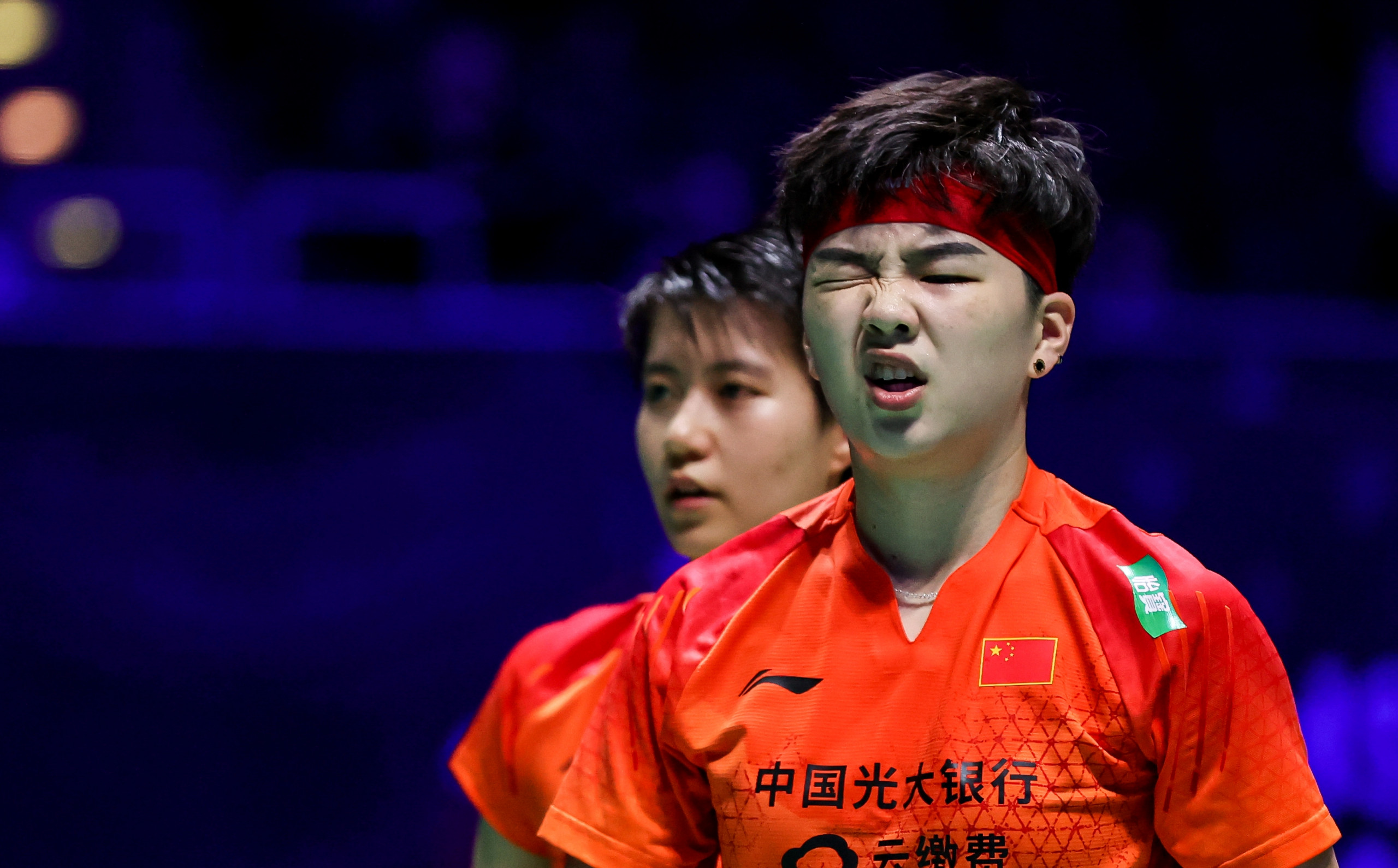
I was very young, 18 or so, and I recovered very well. The doctor said it should not be a problem, it could treated with medication. I didn’t feel much during that time.
After that, every time the season changed or when I competed abroad, I would have a low fever. Until this year, I was the sickest. After the Olympic Games, my immunity was so bad that I couldn’t speak, and I went to the hospital for injections every three or four days.
How are you dealing with these health problems?
If I don’t train a lot, my body will still feel good, particularly after a period of recuperation. I wish I could continue to compete, but I don’t feel good after intensive training.
As I now have pulmonary nodules, anti-inflammatory drugs are no longer effective. As you get older, there will be a lot of uncertainty, and you might need surgery. The doctor’s advice is that there is no need to have surgery, so it is a long-term treatment process, and I hope that it can be resolved through traditional Chinese medicine.
My team leaders and coaches want me to be healthy, and I still want to play. But because the body has this problem, and because the race is long, it is better for the body to recover.
Will you continue to be involved with badminton?
I want to recover, but also I want to make a transition, which is to gradually integrate into society. Since I have not left badminton, I will continue to help players in our province.
I’m sure I will be engaged in a badminton-related career and badminton education in university. I hope to promote badminton using some of my own experience and make more young people fall in love with the sport. The second point is that I’m doing my graduation, so I hope I can learn more in this process, and make up for the lost learning time. Then I can combine my education with my own playing experience to better promote badminton.
(Part 2 to follow)




















